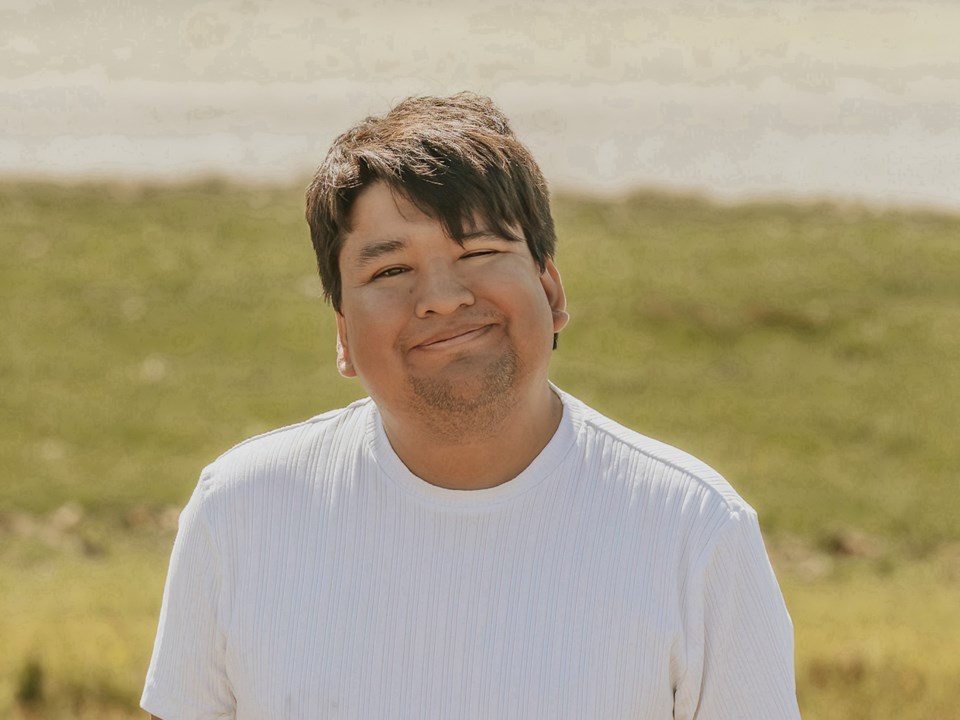The Lil'wat Nation is celebrating one of its own after Qátsya7 Mason Ducharme earned the Nation's second-ever PhD.
After four years of study at the University of Victoria, Ducharme successfully defended his thesis, on the turnover and retention of Indigenous executives in Indigenous organizations, and earned his doctorate on Dec. 4.
When Ducharme started his PhD, he had an eight-month-old daughter, Riel. Midway through his studies, he and his wife had another daughter named Macy. During the long hours, stresses and curveballs a PhD program throws at you, he said his kids kept him going.
Fittingly, you can hear Ducharme’s children in the background of his thesis defence.
“I get my oldest daughter Riel saying that she wants to be a scientist, she wants to be a doctor, she wants to be a chemist,” said Ducharme. “To hear that at under five years old, that's amazing. Because she knows dad's a doctor, she knows dad's a scientist, so she wants to do it, too.”
Ducharme was born in Vancouver and raised between the city and Lil’wat Nation by his dad and grandma—both of whom continue to inspire him.
“[My dad] is a drug and alcohol counsellor for Lil’wat, and he's been one for a long time,” said Ducharme. “He used to abuse drugs and alcohol, but he chose to give it all up to be an actively involved dad and to help others through their healing journey.”
He said his grandma basically raised him until he was 10.
“I don't even remember what her voice sounds like, but I just remember that I felt loved," recalled Ducharme. "And I think that meant a world of a difference for me in my formative years.”
Ducharme has been an Indigenous executive since 2015, when he became a Band Administrator for Nuchatlaht First Nation. During his tenure, he noticed a high turnover rate among his peers.
“When you lose an executive, you have to start all over again,” said Ducharme. “And I think it becomes really challenging in an area where people want to move towards self-government. That stuff takes time.”
So, Ducharme decided to look into the phenomenon. But he faced an early hurdle.
His thesis paper notes “there is virtually no literature on Indigenous executive turnover,” a research gap Ducharme attributes to “the unique challenges Indigenous organizations face, including cultural differences, historical context, and systemic barriers that have not been fully explored or understood in existing studies.”
Through surveys and interviews with Indigenous executives across the country, he identified poor compensation, lack of governance capacity, conflict with Chief and Council, involuntary termination, burnout and lateral violence—oppression between members of an oppressed group—as key drivers of that high turnover rate.
He said part of the problem is competing visions of governance between traditional ideas of governance and the bureaucracy established by the Indian Act.
"The current band office is all individualistic. It's very hierarchical,” he noted. “Whereas if you look at traditional governing structures, it’s very collectivistic, very empowering, very responsible to the people, it's very different. Everyone had a role back then. Right now that doesn't feel that way.”
His thesis on turnover is just the beginning of his work on Indigenous workplace stability. He works with the Centre for First Nations Governance and Carleton University’s Rebuilding First Nations Governance Project to help decolonize Indigenous governance.
“Whenever I do research, I don't want to be all doom and gloom,” said Ducharme. "I want to think about solutions and strategies, too. So what are some good cases out there that exist where communities are addressing lateral violence? What can we learn from them?”
Ducharme follows in the footsteps of Dr. Lorna Wanosts’a7 Williams, who became the first member of the Lil’wat Nation to earn a doctorate two decades ago. Ducharme hopes his example means the Nation won’t have to wait as long for a new PhD this time.
“I have always hoped that we're not going to have to wait another 20 years before someone else in my community gets their PhD,” he said. “I've always been an academic underdog. I really want to let everyone know that if I can do it, so can you.”
You can listen to Ducharme’s thesis defence and follow his PhD journey on his podcast, The IndigeDoctor: From the Reservation to Dissertation.




